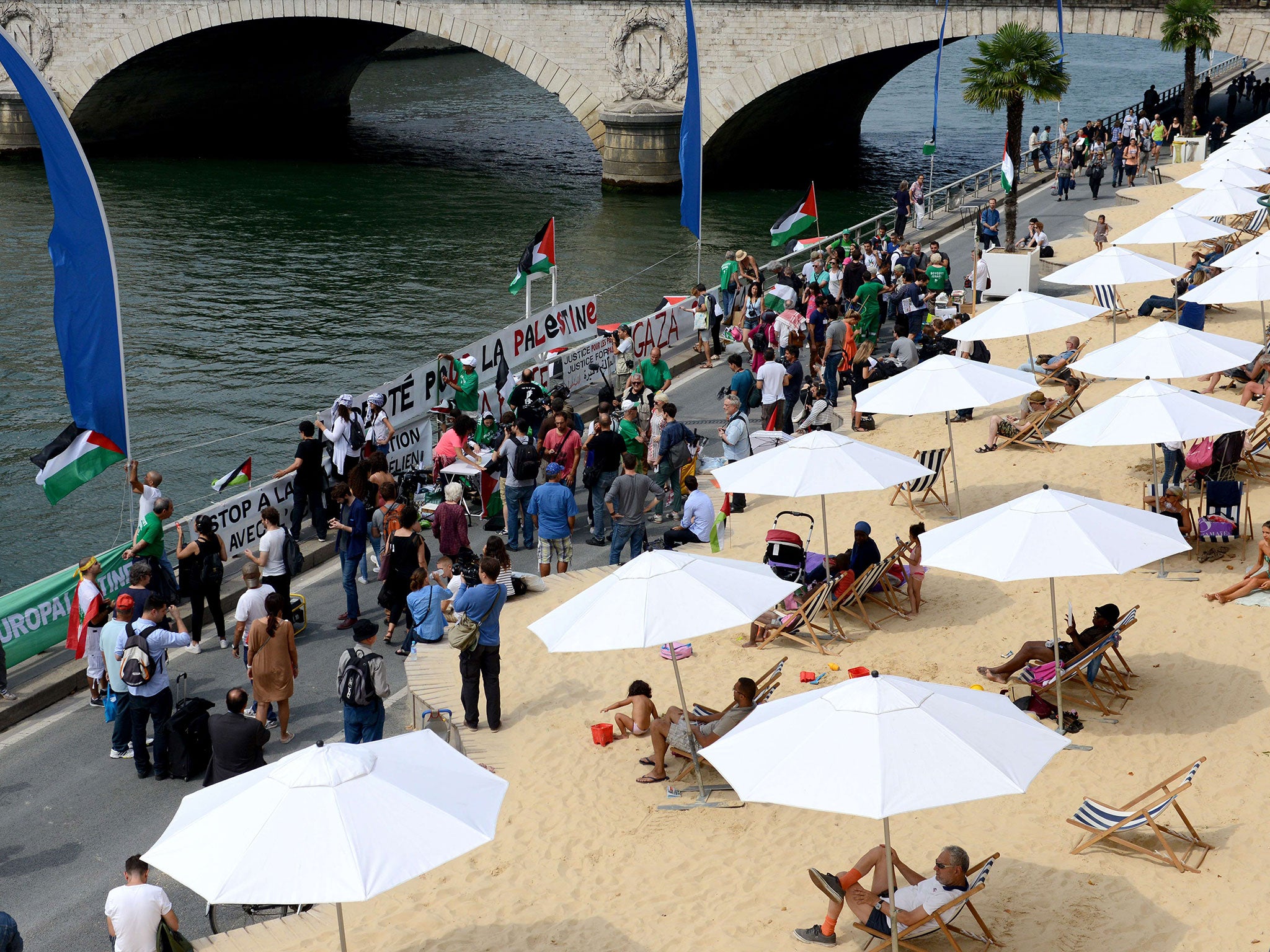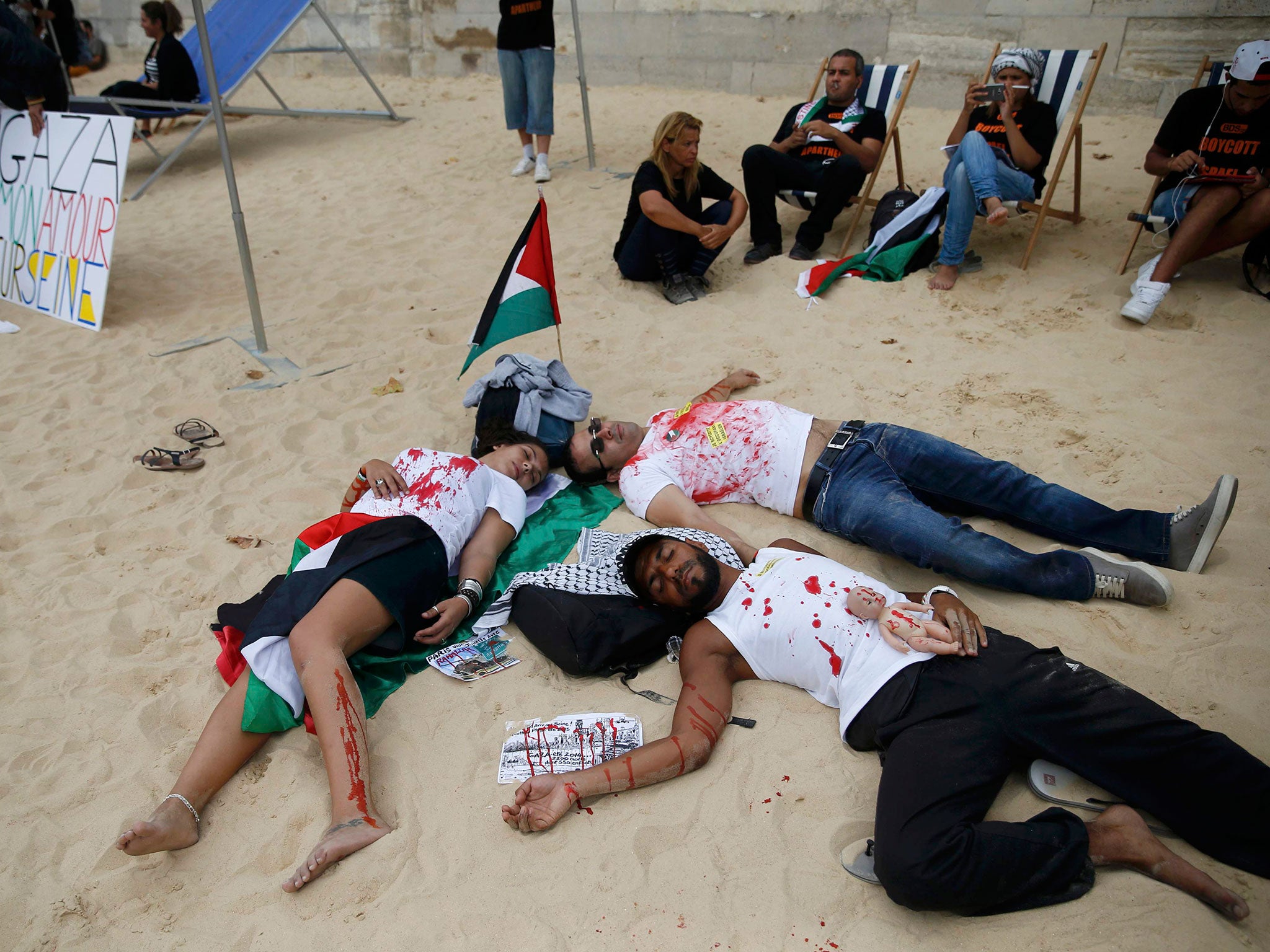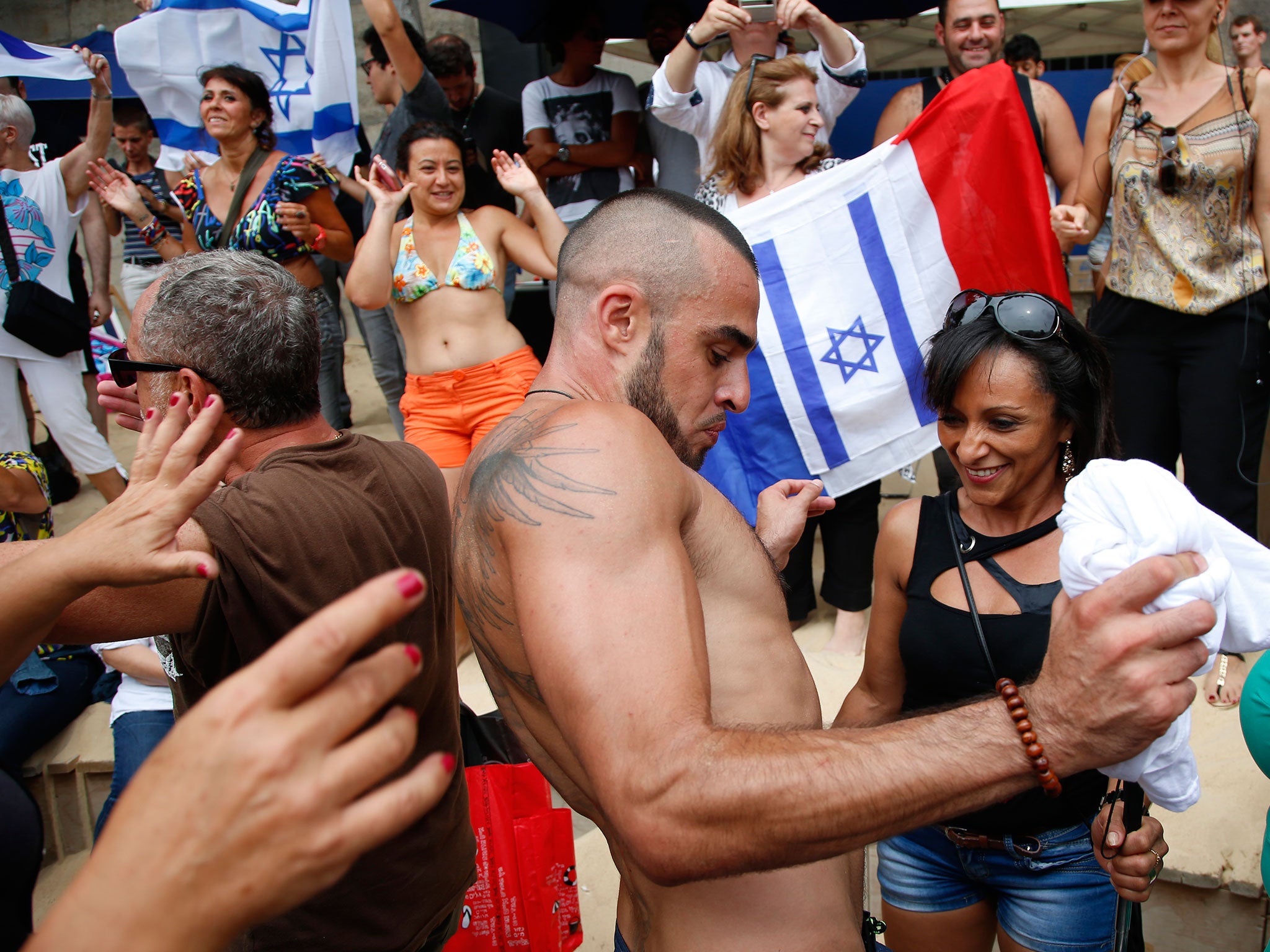Tel Aviv sur Seine: Pro-Palestinian protests mar Paris festival to celebrate the Israeli coastal city
One city councillor labelled the event 'indecent' in light of the war in Gaza last summer

Your support helps us to tell the story
From reproductive rights to climate change to Big Tech, The Independent is on the ground when the story is developing. Whether it's investigating the financials of Elon Musk's pro-Trump PAC or producing our latest documentary, 'The A Word', which shines a light on the American women fighting for reproductive rights, we know how important it is to parse out the facts from the messaging.
At such a critical moment in US history, we need reporters on the ground. Your donation allows us to keep sending journalists to speak to both sides of the story.
The Independent is trusted by Americans across the entire political spectrum. And unlike many other quality news outlets, we choose not to lock Americans out of our reporting and analysis with paywalls. We believe quality journalism should be available to everyone, paid for by those who can afford it.
Your support makes all the difference.Steve Albert, a stylist living in the third arrondissement, Le Marais, is standing on a small stretch of Tel Aviv sand, ignoring the chants of Palestinian campaigners a few metres away as he eats an ice cream. It's no ordinary day at the beach. “It’s the Spanish inquisition,” he complains.
If the organisers of Tel Aviv Sur Seine, a one-day festival to celebrate the coastal city, had hoped to replicate elements of Israel in Europe, they had apparently been successful.
Hemmed in by police, and with Palestinians shouting “Israel is murder”, Mr Albert adds: “I really don’t care about all this, to be honest – I was going to come anyway regardless of the fanfare.”
The makeshift beach Paris builds each summer on the banks of the Seine is divided in two. On one side, Parisians and holidaymakers celebrate Tel Aviv culture with music and falafel. On the other, separated by a dozen riot police, pro-Palestinian groups protest against a “terrorist state” on the “Gaza Plage”.
For the past 13 years “Paris Plages”, hosted by the City Hall, transforms the banks of the Seine into a sandy beach for people who cannot afford to go on holidays. But this year, controversy arose after the newly elected mayor, Anne Hidalgo of the ruling Socialist Party, decided to invite several seaside cities of the world to join the Parisian event, including Tel Aviv.

One Paris councillor of the Left Party, Danielle Simonnet, called the event “indecent” in light of the war in Gaza last summer. A petition to cancel it gained more than 20,000 signatures; 500 police officers were deployed and roadblocks were set up around Hotel de Ville, Paris’s Town Hall, in response to the furore.
To either side of the building, separated by a few hundred metres, stood the entrances to the beaches, with those waiting to enter forced to queue to descend to the riverside walkways after being frisked.
“Its annoying to have to wait,” an elderly man with a hearing aid says in the queue to Gaza beach. “This is where I come to walk everyday.”
In an article for Le Monde on Tuesday, Mayor Hidalgo defended Tel Aviv, called Tel Aviv “a progressive city” and “the chief city of opposition in Israel”. The event, she added, was simply an attempt to bring its nickname, “the city which never sleeps”, to life more than 2,000 miles away in Paris.
A journalist from the newspaper wrote: “The police presence, larger in number than the holiday-makers, gave an absurd and oppressive tinge to the event.”
By 2pm, the Tel Aviv beach is full, its dance floor packed with revellers brandishing Israeli flags. A handful of families queue to take photos with French riot police under the Notre Dame bridge.
“As Jews we’re here to support the event,” says Lee Freund, from London. “We’re fine about the protest next door. Everyone’s entitled to their own opinion as long as it’s peaceful.”

But Irides Rodriguez, who moved from Portugal to Paris 35 years ago, said she thought the police should “politely” move the protesters. “We’re obliged to hide ourselves at the moment in France,” she says. “Something sinister is stirring here. It could be because the Muslim population is getting more powerful.”
After the attacks on Charlie Hebdo and a kosher supermarket in Paris that left 17 dead in January, Manuel Valls, the Prime Minister, launched a three year action-plan against racial hatred. This week Mr Valls gave his “full support” to Mayor Hidalgo’s project.
The other side of the blockade, pro-Palestinian groups are addressing a sea of Palestinian flags. Warda Ben Saada, a stylist in her twenties, is sitting with friends, wearing a T‑shirt smeared with fake blood and holding a doll.
“Tel Aviv sur Seine is souped up as a cultural thing but it’s a way of normalising a state that killed 2,500 people, including 500 children, this time last year and has no respect for UN laws,” she says. “How can Paris hold a beach party after they killed children on a Gaza beach last year?”
Nearby, photographs of dead or injured children are posted on the river barrier, while stalls hand out postcards of a crying child next to an Israeli soldier. Claire Strauss, a pro-Palestinian campaigner and non-practising Jew, says: “I’m all for people celebrating Israel at home, but its not appropriate in a public place.”
But Zacharie Petit, who supports a campaign encouraging French Jews to stay in France, says: “Most people on either side of this bridge don’t understand there is no side to take.”
Join our commenting forum
Join thought-provoking conversations, follow other Independent readers and see their replies
Comments